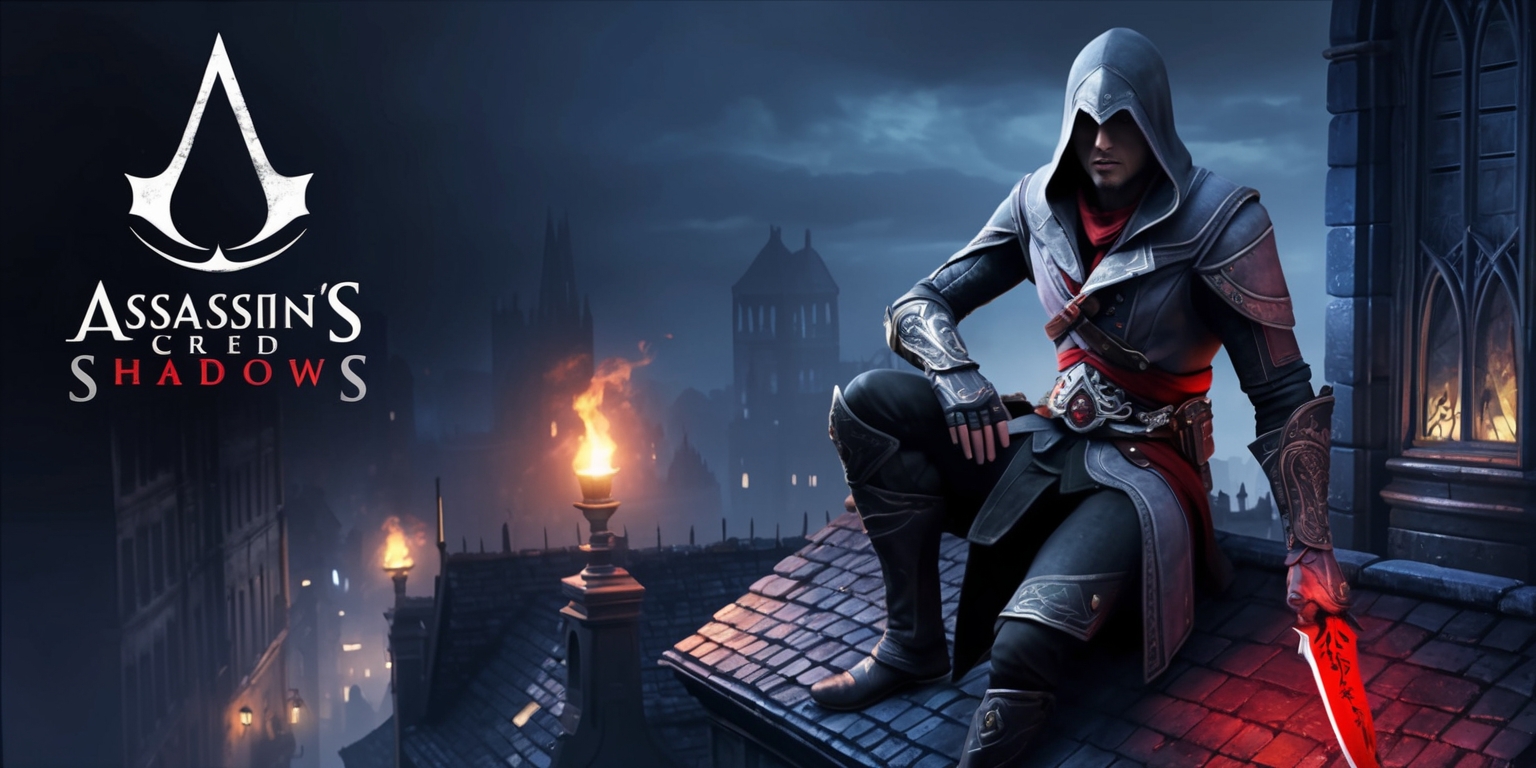Shadows of Destiny: The Final Choice of Honor and Legacy
- 2025-04-02
- 0 Comments

In the world of Assassin’s Creed Shadows, a weighty decision awaits players as they navigate a quest that challenges notions of honor, sacrifice, and fate. At a pivotal moment during the “Spring and Fall” mission, you face a dilemma involving a key character whose destiny is intertwined with themes of familial protection and personal valor. This crossroads, set against the backdrop of a richly woven narrative, invites you to reflect on the nature of sacrifice and closure. While the outcome may seem predetermined, the journey you undertake and the nuances of your choices embellish the overall experience with emotional depth and moral complexity.
Deciding a Character's Fate
Throughout this quest, you are compelled to contemplate whether a prominent figure should be eliminated or treated with compassion. This decision is more than a mere gameplay mechanic—it represents the intersection of duty, empathy, and narrative consequence. While every choice appears laden with potential for altering the character’s personal story, the eventual course of events is fixed, yet the subtleties in dialogue and relationship outcomes resonate deeply with the themes of protection and legacy.An Endgame Dilemma
As you delve deeper into the “Spring and Fall” mission, the moment of decision seems to loom larger than any other part of your journey. The choice regarding the fate of this character is wrapped in an aura of inevitability, underscoring the idea that some events are meant to transpire regardless of the path chosen. In this context, the decision is less about altering the storyline than it is about providing a final emotional punctuation—a chance for dialogue that honors the trials and lasting impacts of the characters involved.The Journey Through Shadows
Assassin’s Creed Shadows invites you to embark on a narrative filled with strategic challenges and layered character dynamics. Your quest is not merely a series of tasks to be completed but a path lined with moments that define both personal morality and the broader tapestry of the game’s world. As the mission unfolds, every decision you make, especially one concerning a central character’s fate, echoes the historic and ideological conflicts that have defined his existence throughout the storyline.
The Role of The Noble Shinbakufu
Central to this mission is your pursuit of The Noble Shinbakufu, a task that underscores the intricate interplay between duty and personal conviction. During the quest, the search for this illustrious entity becomes a vehicle for testing allegiances, pushing you to question the very nature of loyalty within the shadowy confines of feudal intrigue. The quest setting, replete with symbolism and historical nuances, enriches every dialogue and challenge, providing context to the decision you must ultimately make.Understanding Ukita Naoie's Character
At the heart of this decision lies Ukita Naoie—a figure whose presence is marked by complexity and emotional gravitas. His character is crafted to highlight the themes of paternal responsibility and the perils that come with protecting loved ones in treacherous times. His internal conflict, driven by a desire to shield his son from danger at any cost, becomes a moral fulcrum on which your decision teeters. Whether he is met with stern decisiveness or softened by mercy, every action taken towards him reflects broader ethical questions that transcend the game itself.The Decisive Moment in Action
When the critical point arrives—where you must determine his fate—the game offers a dramatic pause that amplifies the emotional stakes. In that heartbeat, every dialogue option and every nuanced expression of resolve is magnified. The environment grows thick with tension as you prepare to make a choice that is both irreversible and profoundly symbolic. It is in these hushed moments, filled with anticipation, that the true art of narrative decision-making in Assassin’s Creed Shadows shines through.An Inevitable Outcome
A particularly captivating facet of this encounter is the notion that the character’s end is fated regardless of your choice. Whether you opt to immediately eliminate him or grant him a temporary reprieve by showing mercy, the ultimate resolution remains unchanged. This narrative design emphasizes the idea that while the act of making a decision is steeped in personal meaning, some outcomes are inexorable components of the story’s unfolding. Even as you deliberate over the nuances of closure and sacrifice, the gears of destiny continue to turn.When You Choose Elimination
Opting to eliminate Ukita Naoie is a decision marked by decisive finality. In this course of action, he is subdued without resistance, and the encounter is resolved swiftly. There is little in the way of prolonged struggle; the act itself is executed with the cold precision of inevitability. Choosing this path allows you to experience a particular set of dialogue options later in the mission—moments that underscore the stark, unyielding nature of the decision. Although the physical outcome is the same as any other route, the emotional resonance—and the impact it has on those left behind—is rendered with a sense of blunt finality.Dialogue Dynamics with a Fatherless Son
Following the decisive act, you are presented with an opportunity to engage with Ukita Naoie’s son. The conversation that ensues is laden with the weight of loss and the possibility of emotional closure. The dialogue does not merely serve as a narrative formality but as a moment for reflection on the inherent costs of the decision taken. Whether the words exchanged are curt or imbued with a semblance of consolation, the interaction offers a glimmer of catharsis for both the character’s lineage and your understanding of the story’s deeper layers.The Emotional Weight of Closure
This moment of interaction holds significance beyond gameplay; it is a final twist of fate that offers a measure of comfort to those who carry the burden of loss. By choosing a path that seems unchangeable at first glance, you still afford the surviving family member a chance to glean some form of closure. The promise of emotional restitution is not in altering the inevitable, but in the small, poignant gestures that acknowledge the sacrifice made—a tribute to the enduring bond between father and son, even amidst the harsh necessities of duty.Opting for Mercy
There is also the path of mercy, wherein you initially choose to spare Ukita Naoie rather than subject him to immediate elimination. This decision is steeped in the understanding that as long as he remains alive, his son faces ongoing peril. His admission—he offers himself up in order to ensure that his son remains safe—is both poignant and bitterly honest. The narrative is enriched by this moment of vulnerability, a demonstration of a father’s insurmountable commitment to his child, even as it seals his own fate. While the eventual resolution remains unchanged, this compassionate detour grants a temporary reprieve and a deeper emotional narrative.The Scroll's Enduring Testimony
An essential element that emerges when you choose the merciful route is the involvement of an ancient scroll—a symbol of old wisdom and the creative spirit of youth. If given a moment to read this scroll, Ukita Naoie is moved to recite a verse penned by his son, a final testament that echoes through the mission. This verse serves not only as a piece of literary art but as a vessel carrying the dreams and emotions of a father and his son. Although the character’s demise is ultimately unavoidable, the verse stands as a legacy, offering a narrative depth that transcends the immediate circumstances of the encounter.The Reassurance for His Son
When the verse is shared with his grieving son, a measure of solace is offered—a comfort in the fact that his father’s thoughts and heart were not lost to the winds of fate without leaving behind a personal fingerprint. The recitation of these heartfelt words reinforces the emotional connection between the two characters, providing a bittersweet closure that acknowledges the tender ties of family. In moments such as these, the game illustrates that true legacy is measured not solely by actions, but by the emotional imprints that remain long after a life has passed.Reward Paths and Invariable Outcomes
It is important to understand that regardless of whether you choose to eliminate or extend mercy to Ukita Naoie, the rewards you garner at the end of the mission are identical. The game’s design intentionally keeps the material rewards static while offering variable emotional and narrative experiences based on your decision. This approach emphasizes that while the character’s fate is sealed in the grand scheme of the storyline, the personal satisfaction and the narrative nuances you experience are unique to your chosen path. Therein lies an elegant duality: the inevitability of fate coupled with the richness of personal interpretation.Exploring Further Horizons in the Game
Beyond the immediate decision at hand, Assassin’s Creed Shadows is replete with diverse challenges and layers that invite further exploration. While this particular quest focuses on a singular moral and emotional crossroads, the game itself is a treasure trove of skills, weaponry, and armor choices that define combat styles and strategic advantages. The interplay between character development, environmental storytelling, and mission critical decisions weaves a tapestry that is both immersive and intricately designed to reflect the complexities of historical conflict and personal sacrifice.Strategic Reflections in the World of Shadows
This mission—and others like it—challenge players to think deeply about the ramifications of their in-game decisions. Beyond simply choosing between two options, you are encouraged to consider the broader narrative significance and the underlying ethical dilemmas that each choice presents. Strategic reflection in this context is not limited to combat or tactical maneuvers; it extends into the realm of moral philosophy within gameplay. Every action, every dialogue, and every fleeting moment of hesitation contributes to a larger commentary on human imperfection and the often painful journey toward redemption.A Legacy of Choices and Consequences
What stands out in this narrative experience is the inherent message that even in a world where outcomes are predetermined, the essence of choice is in the journey rather than the destination. The decisions you make are imbued with a legacy that transcends the confines of the mission itself. They contribute to an overarching story where every character, be they warrior, mentor, or family member, plays





Leave a comment